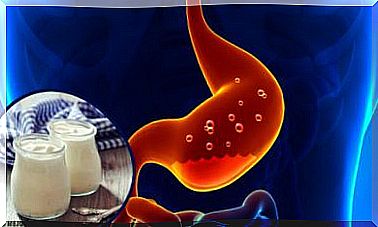What Are The Factors That Influence Sensitivity To Pain?
We know that some people are more sensitive to pain than others, but it is not always easy to understand it. Several factors can influence this difference, in particular the genetic factor. Here’s what the science so far knows about pain sensitivity.

The existence of people who are more sensitive to pain than others is well known. We have all experienced it at one time or another. Among different individuals, including the same age or the same family, sensitivity to pain may vary. Likewise, the response of each organism to pain relievers to treat pain varies widely.
What is pain? It is not easy to define it. Within the scientific community, there is a consensus to describe pain as an unpleasant experience associated with actual or potential harm.
As it is complex to define, it is also difficult to process and interpret. For physicians, dealing with a pain situation is a complicated task. Added to the fact that some people are more sensitive to pain than others, finding the right approach to pain for each person then becomes a thorny road.
It is estimated that more than half of the changes in pain sensitivity in humans can be attributed to genetic causes. Basically, it’s like saying that the pain threshold that we endure is in our DNA.
The pain threshold is the minimum amount of stimulus that can be withstood until we experience the sensation that we identify as painful. This threshold is unique to everyone and can be changed by certain factors, other than genetics, which we are talking about now.
Pain sensitivity factors
As we have pointed out, some people are more sensitive to pain than others for genetic reasons. However, genetics are affected continuously and over time. The factors that affect it are:
- Epigenetics: Some scientific studies have analyzed the sensitivity to pain of identical twins in order to discover genetic variability. Twins have the same DNA content, but respond to pain differently. The studies then conclude that lifestyle and social context modify the pain threshold.
- Desensitization: Pain is a sensation perceived by receptors in the body called nociceptors. When the pain stimulus is chronic and is prolonged over time, the nociceptors are deactivated. This is called desensitization.
- Warning: we also know that paying attention to pain can increase or decrease it. In exercises where the patient is asked to focus on other distinct things, the pain tends to be perceived as milder.
- Sleep: Some people are more sensitive to pain than others because of poor sleep. Some scientific studies have also investigated this variable and found results indicating that poor sleep increases brain activity in areas that interpret pain. The worse the rest, the lower the pain threshold.

People who are less sensitive to pain
There are unusual genetic alterations that result in insensitivity to pain. When it was first discovered, this condition was called pure analgesia.
With time and a better understanding of genetics, the diagnosis has become more precise. Today, we have identity for alterations, such as channelopathy associated with insensitivity to pain, or the mutation of the SCN11A gene.
Genetic mutations that alter pain sensitivity leading to analgesia usually consist of variations in nociceptors. Other mutations affect the nerves that carry pain information to the brain.
While this seems to be an advantage over people who are more sensitive to pain, it is not. The absence of pain is indeed a danger to the life of the person who possesses this characteristic.
In the absence of pain, the body loses the ability to react to potential or real dangers. Imagine that hammering a nail in the foot does not elicit a defense response and the nail generates an infection. Likewise, if pain in an internal organ does not give the corresponding alert, the disease can progress to death.

People who are more sensitive to pain
At the other extreme, as opposed to individuals unresponsive to pain, we have the more sensitive people. They interpret the pain signals in an exaggerated way, making the slightest pain unbearable. This disorder also presents genetic alterations, such as for example primary erythermalgia. The affected gene is SCN9A, which increases the nerve transmission of pain.
Moreover, beyond genetics, some people are more sensitive than others because of morphine and addictions. Those individuals who regularly use morphine derivatives as pain relievers, or who are addicted to heroin, may become more sensitive to pain over time.
This state of hyperalgesia is usually associated with another condition known as allodynia. Allodynia is the pain caused by situations that shouldn’t be painful, such as rubbing clothes for example. People who are more sensitive to pain often experience pain as a result of minimal stimuli.









